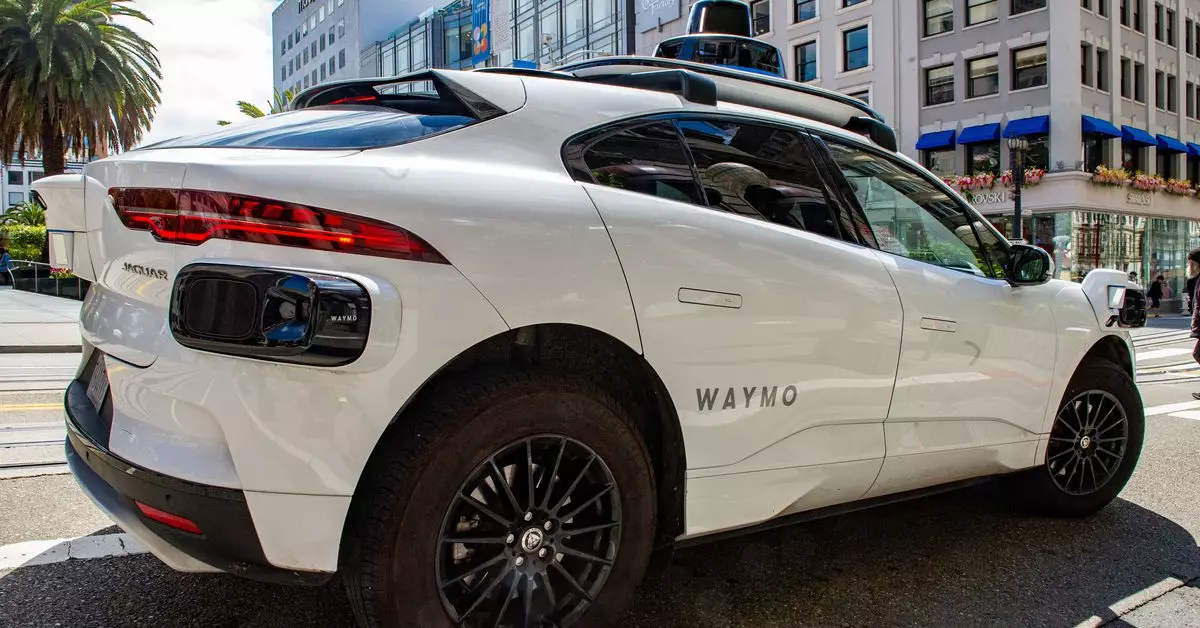In a significant move towards global expansion, Waymo, the autonomous vehicle arm of Alphabet, has announced the deployment of its self-driving cars in Tokyo, Japan. This marks the company’s first foray into a foreign market, a venture that encapsulates not only the excitement of technological innovation but also the myriad challenges posed by differing traffic norms and urban conditions. With Tokyo’s complex infrastructure and unique driving style—characterized by left-hand traffic—Waymo’s decision to initiate operations in this bustling metropolis represents both a bold ambition and a strategic experiment.
Initially, Waymo’s approach in Tokyo will focus on a manual driving phase aimed at collecting critical data. This meticulously planned “road trip” seeks to grasp the intricacies of Japanese driving behaviors and the geographic layout, essential for refining their autonomous system. The integration of local expertise is pivotal, as Waymo collaborates with Nihon Kotsu, a well-established taxi fleet operator, to facilitate this data-gathering effort. Approximately 25 vehicles are slated for delivery, with the first batch expected to arrive by early 2025. This partnership not only provides operational support but also aligns Waymo with local regulatory frameworks and community needs.
While announcing these plans, Waymo asserted that it is not yet prepared to roll out a robotaxi service in Tokyo. Sandy Karp, a representative of Waymo, emphasized that the objective is to learn and adapt rather than immediately launch a commercial service. This cautious stance is indicative of the company’s broader strategy of embedding itself within the existing transportation ecosystem in Tokyo before transitioning to fully autonomous operations.
Despite this measured approach, the groundwork is undoubtedly being laid for future operations. The collaboration with GO—a popular Japanese taxi app—hints at a strategic direction where Waymo may leverage existing local platforms for introducing its robotaxi services. This mirrors their U.S. operations, where Waymo vehicles currently operate through partnerships with ride-hailing giants like Uber.
In the U.S., Waymo’s robotaxi services have made marked progress, with approximately 700 operational vehicles across cities like San Francisco, Los Angeles, and Austin. Their rising statistics, including 175,000 paid trips per week, underscore a growing acceptance of autonomous ride-hailing services. However, the Tokyo venture comes at a time when many autonomous vehicle programs are hitting roadblocks—General Motors’ decision to scale back on its Cruise initiative reflects the financial strains and uncertain viability surrounding full-scale robotaxi programs.
Japan, too, presents a distinct landscape for autonomous vehicles, often characterized by rigorous safety standards and a well-established automotive industry that may feel threatened by foreign tech companies. Companies like Toyota and Nissan are increasingly focusing their autonomous vehicle testing efforts outside of Japan, particularly in China, where regulations may be more favorable.
Waymo’s entrance into the Tokyo market is as much about showcasing confidence in their technology as it is about market expansion. By entering this competitive environment, Waymo is signaling its intent to be a global player in the realm of autonomous vehicles, a space that is continuously evolving and fraught with challenges. The Japanese market, with its unique parameters and technological landscape, offers the perfect testing ground for Waymo’s innovations while underscoring the potential for collaboration between established players and novel tech initiatives.
As Waymo steps into Tokyo, the world watches with bated breath to see how its efforts will unfold. The company’s careful approach—prioritizing local collaborations and extensive data collection—positions it well for potential future success. Nonetheless, the path ahead remains laden with uncertainties, not only for Waymo but for the entire autonomous driving industry as companies navigate the Balance between innovation and practical deployment. Ultimately, Waymo’s Tokyo experiment may serve as a pivotal moment, shaping the future landscape of global transport solutions and shaping the trajectory of autonomous vehicle acceptance worldwide.


Leave a Reply